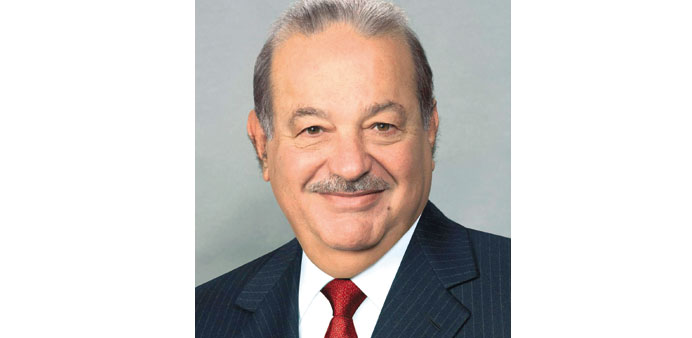Reuters/Mexico City
As Mexico gets ready to unleash a battery of regulations to curb the power of telecoms mogul Carlos Slim, the government is sending clear signals that it will not shy away from breaking up his business if necessary.
Ever since President Enrique Pena Nieto’s government unveiled a landmark antitrust bill in March allowing regulators to make dominant phone and television companies sell off assets, many Mexicans have questioned whether it would go that far.
Increasingly, though, officials say that option is no idle threat against Slim, who has held sway over the Mexican telecommunications industry for the best part of a generation.
By 2010, that domination had made him the world’s richest man. The 73-year-old Slim kept that title until last month, when a sell-off in shares of his giant phone company America Movil helped cut his wealth to about $70bn and put him behind Microsoft’s Bill Gates in the top spot.
The dumping of America Movil stock was fed in part by uncertainty about Slim’s companies under Pena Nieto, who took office in December vowing to break the hold that a few families have maintained over key areas of Mexico’s economy.
America Movil’s local fixed-line and mobile phone units, Telmex and Telcel, have for years used legal injunctions and appeals to thwart attempts by the state to cut them down to size.
The reform, approved in Congress and due to be signed into law, aims to strip away much of that legal cover, create a stronger regulator and set new, tougher rules to help competitors catch up.
To do that, a new regulatory body known as Ifetel is likely to make Slim’s companies share infrastructure and create a tariff regime that makes the billionaire charge rivals less to access the vast phone network he operates.
Whether that will be enough remains to be seen, said Jose Ignacio Peralta, deputy minister for communications and transport, one of the architects of the reform.
He stressed that the legislation gives authorities the power to totally reshape the industry, from ordering the sale of assets to possibly breaking up companies completely.
“Even if it’s true that asymmetric regulation will help improve competition, it’s probably going to do so in a gradual way that needs to be accelerated. The possibility of asset divestment is in the constitutional text,” Peralta said.

